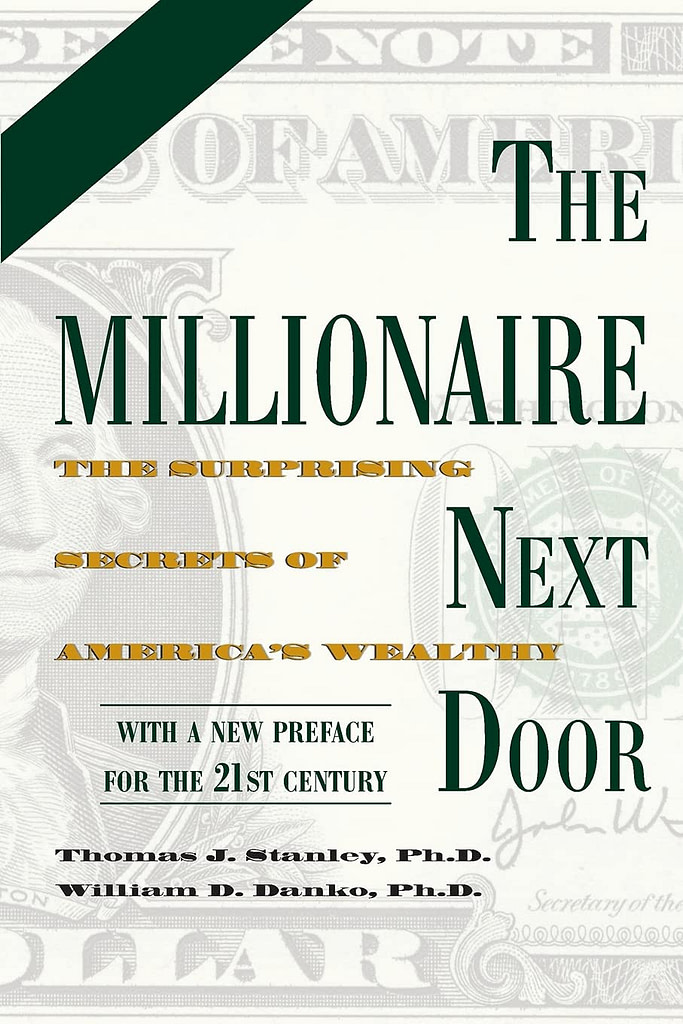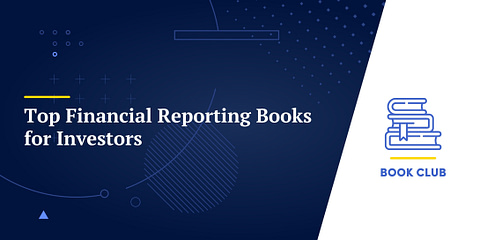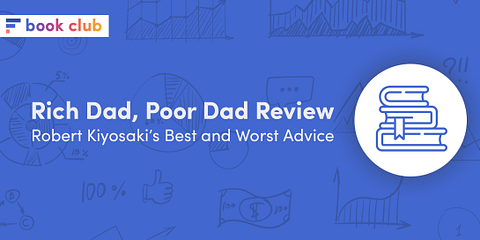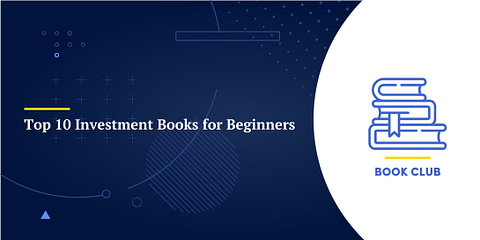The Millionaire Next Door made waves in 1996 when it challenged America’s ideas about wealth. It’s long been popular in the early retirement community, too, so I was excited to finally read it.
Notably, the book isn’t so much a step-by-step guide to building wealth as it is a research report. The authors paint a picture of typical wealthy households using data and contrast it with the ideas most of us have about rich people.
This The Millionaire Next Door review will point out what I think are the easiest lessons to extract from the book and consider their merits.

The Millionaire Next Door Summary
The Millionaire Next Door is rooted in a simple premise: Most wealthy people aren’t pulling up next to you at a stoplight in a BMW. In reality, they’re your next-door neighbor mowing the lawn on Tuesday morning as you pull out of the driveway and go to work.
In other words, being rich doesn’t actually look the way most of us think it does. And if you try to copy the people who outwardly appear to be millionaires, you’ll never become one yourself.
That insight alone is valuable, but the book also meticulously explores the way that wealthy households operate. There are several great lessons in it that can help you and your family duplicate their success.
However, some of its attitudes don’t exactly hold up in today’s world. For example, all of the millionaires that the authors interviewed were men, and the authors write as though the old-fashioned nuclear family model is a given.
It assumes a male breadwinner and a housewife, with children destined to live out the same pattern. So if you decide to read the book, be aware that it’s outdated in some respects. Try to focus on extracting the broader lessons that can still apply to your life.
👉 Important Note: Do not take this book’s recommendations or any of my opinions on them as investment or tax advice.
Stanley and Danko’s Worst Lessons
Let me start with a quick disclaimer: The authors of The Millionaire Next Door (Thomas Stanley and William Danko) and I have many similar ideas when it comes to wealth generation. I don’t have many negative things to say about the book’s underlying messages.
However, there are some potential takeaways I want to draw to your attention. These points aren’t really instances of bad advice that I want to disagree with. They’re more like ideas that you might absorb that could backfire if you don’t apply them correctly.
1. Self-Employment is the Best Path to Wealth
The authors report that roughly two-thirds of the millionaires they spoke to were self-employed. The point shows up a lot throughout the book, and it’s easy to come away with the idea that starting a business is the best way to become wealthy, especially if you don’t read to the end.
I’ve said it before in other book reviews, but self-employment isn’t for everyone. In fact, despite being happily self-employed myself, I’d argue that it’s probably not for most people. There are a lot of things you give up when you go off on your own, such as:
- Health insurance benefits
- Automatic tax withholding
- A social network of coworkers
- Unemployment benefits
In addition, getting a business off the ground requires so much more time, capital, energy, and risk than getting a job that many will never be able to attempt entrepreneurship safely.
Ultimately, the only requirement for accumulating wealth is that you save and invest a significant portion of your income. There’s no reason you can’t do that through traditional employment.
2. Spend Heavily on Your Children’s Education
I know this next point might sound a bit nitpicky, but it warrants addressing. The authors claim that wealthy people spend heavily on their children’s schooling because they know the value of an education. It’s an exact quote from their imaginary, prototypical millionaire: “We spend heavily for the educations of our offspring.”
👉 What the authors are probably trying to say is that getting an education is valuable. I agree with that, but there’s a potentially dangerous interpretation of their statement: the literal one.
Yes, educations have substantial monetary value, but sinking thousands of dollars into a degree can cripple your finances for life. Don’t be too quick to give your life savings to a university or take out Parent Plus student loans, even for your kids.
There are plenty of ways to get through college without debt, like community college classes, federal grants, and scholarships. Make sure you exhaust them all before you reach for your wallet.
3. Be a “Tightwad”
Don’t get me wrong, I like to save money twice as much as the next guy, and that tendency has done a lot for my finances. However, there is such a thing as pushing for too much frugality, and The Millionaire Next Door treads dangerously close.
I speak from personal experience when I say that saving money can be addictive, and you can easily trap yourself in a troublesome headspace by focusing on it too much.
I hate to admit it, but I’ve struggled to enjoy purchases because I’m too busy calculating what they cost me in foregone compound interest on more than one occasion.
The Millionaire Next Door seems to lead people toward this line of thinking. It notes that most millionaires are self-proclaimed “tightwads.” They hate to let go of a dollar, even when they have enough. To quote their constructed millionaire again:
“I am a tightwad[…] Why else would I spend two or three hours being personally interviewed by these authors? They paid me $100, $200, or $250. Oh, they made me another offer – to donate in my name the money I earned for my interview to my favorite charity. But I told them, “‘I am my favorite charity.’”
I dream of a day where no American lives paycheck to paycheck, but I also caution you not to overcorrect. Being financially responsible doesn’t mean you should be a miserable miser until you can afford to retire.
Stanley and Danko’s Best Lessons
Now that we’ve covered the less favorable aspects of the book, let’s focus on the good stuff. Honestly, I had a hard time narrowing my favorite lessons down to these four, which speaks volumes about the quality of the content.
Many of the best ideas in the book revolve around building a wealthy household and ways to make sure your kids do too, which was refreshing. Financial advice is everywhere these days, but it’s usually about managing your individual funds and lacks practical guidance for family units.
1. Intentional Frugality is Better Than Keeping Up With the Joneses
I know I chided The Millionaire Next Door for its overemphasis on frugality earlier, but there’s a balance to these things. The book still does a great job of driving home the distinction between having a high income and being wealthy, which I appreciate. It’s all about how much you save, not how much you earn.
The authors also coin one of my favorite terms for an emergency fund of all time: a “go-to-hell fund.” The idea is that having months or years of cash saved gives you the power to say no to an employer in a world where the power dynamic often skews the other way.
Central to their notion of frugality is the idea that becoming wealthy requires going against the typical expectations of wealth. If you waste your money accumulating fine trappings like luxury cars and massive houses, you trap yourself.
They mention an interesting anecdote of a millionaire they interviewed who declined a free Rolls-Royce. He felt that it would be more of a burden than anything and would pressure him to inflate his lifestyle further.
The idea that one luxury item leads to another resonates with me. It would feel incongruous to park a Rolls-Royce outside of a modest two-bedroom apartment, after all. Pretty soon, you’d be upgrading everything else in your life to match it. It’s like getting plastic surgery. Not many people can stop at just a nose job.
2. Marry Someone Who Shares Your Financial Values
While not typically a topic of personal finance, your choice of life partner has a massive impact on your ability to accumulate wealth. The Millionaire Next Door reports that most millionaires have spouses who are on board with their frugality.
That helps protect you from two potential pitfalls:
- The overly spendy spouse: No amount of self-discipline will save your finances if your spouse blows your budget every month. You’ll work indefinitely only to finance their spending habit.
- Financial disagreements: Arguments over money are one of the leading causes of divorce, and divorce is one of the leading causes of bankruptcy – the opposite of wealthiness[1, 2].
If you’re going to marry someone and raise a family, make sure you choose a partner who shares your financial values. Bring up the topic relatively early on in new relationships, even if it feels a bit crass. You’ll be glad you did in the long run.
3. Passive Investors Usually Outperform Active Investors
One of the statistics I found the most shocking in the early days of my financial education was that the vast majority of active fund managers underperform compared to a simple S&P 500 index fund.
Over the 15 years ending in 2019, roughly 92% of large-cap funds failed to beat the market. They also charge significantly higher investment fees than index funds, which erodes a shocking percentage of your portfolio over time.
Stanley and Danko found that most millionaires in America recognize this and take a primarily passive approach to investing:
“Fewer than one in ten millionaires are ‘active investors.’”
If you’ve ever seen The Wolf of Wall Street, you may remember the scene where Matthew McConaughey’s character admits that stockbrokers have no clue what the market is going to do. As he puts it, the market could go up, down, sideways, or in circles – who knows? And he’s mostly right.
If the professionals can’t do it, the average person without the same resources would likely struggle even more. Besides, when passive investment returns are more than enough to become wealthy, why waste the effort or take the risk?
4. Raise Your Children to Be Financially Capable
High-income and wealthy parents face unique financial challenges when it comes to their children. If they’re not careful, they could end up with kids who grow up so privileged that they don’t understand the value of money or hard work.
The authors of The Millionaire Next Door point out that these children tend to underearn, overspend, and remain financially dependent on their parents for much longer than they should.
Not only does that cripple the child’s development, but it also poses a significant drain on the parent’s finances. As you might expect, it’s most common in households with high income and high spending.
The authors write:
“What is expected of children who are exposed to a household environment predicated upon very high consumption, few-if any-economic constraints, little planning or budgeting, no discipline, and pandering to every product-related desire?”
Be careful how you discuss and handle money around your children, as well as how much you give to them. Not only do they listen to the things you say, but they tend to absorb your attitudes as well. It’s easy for that to get out of hand in dangerous ways.
Is It Worth Reading The Millionaire Next Door?
I appreciate many of the lessons in The Millionaire Next Door, and if you’d like to dive deeper into any of the ones I discussed above, I’d say the book is worth perusing. There are some interesting anecdotes and tips in there that you’ll probably find enjoyable.
That said, it’s not a how-to book. It won’t help you learn to do any of the things it suggests, meaning there’s very little practical budgeting, investment, or business advice in there. If you’re looking for that, you should go elsewhere.
It’s also a little old-fashioned in ways that might be upsetting to some people, and it can be repetitive, especially about the importance of frugality.
All in all, it’s probably worth picking up a free copy somewhere and giving it a quick read-through, but you’re not missing out on much by skipping it now that you’ve read this review of the highlights.











